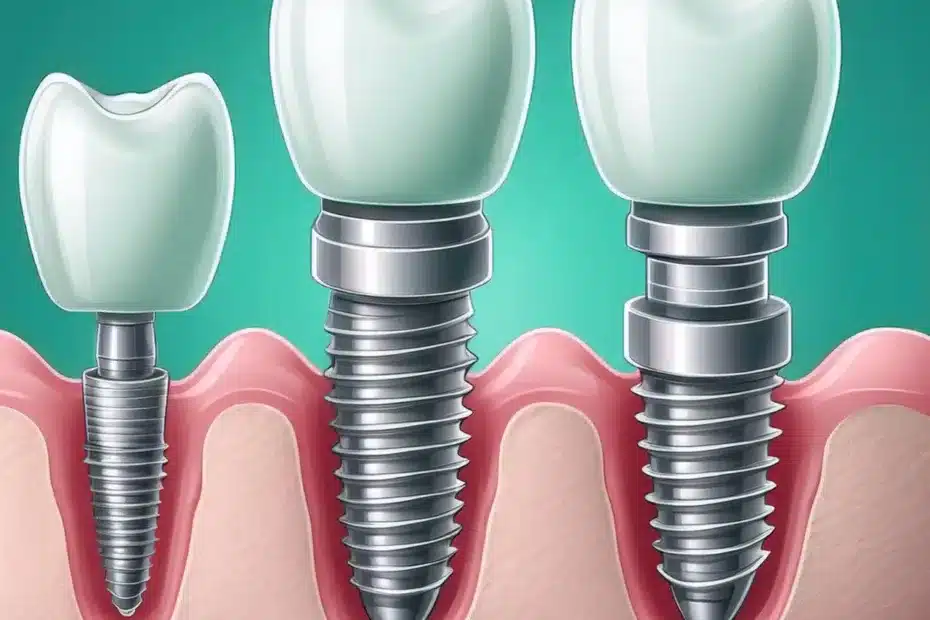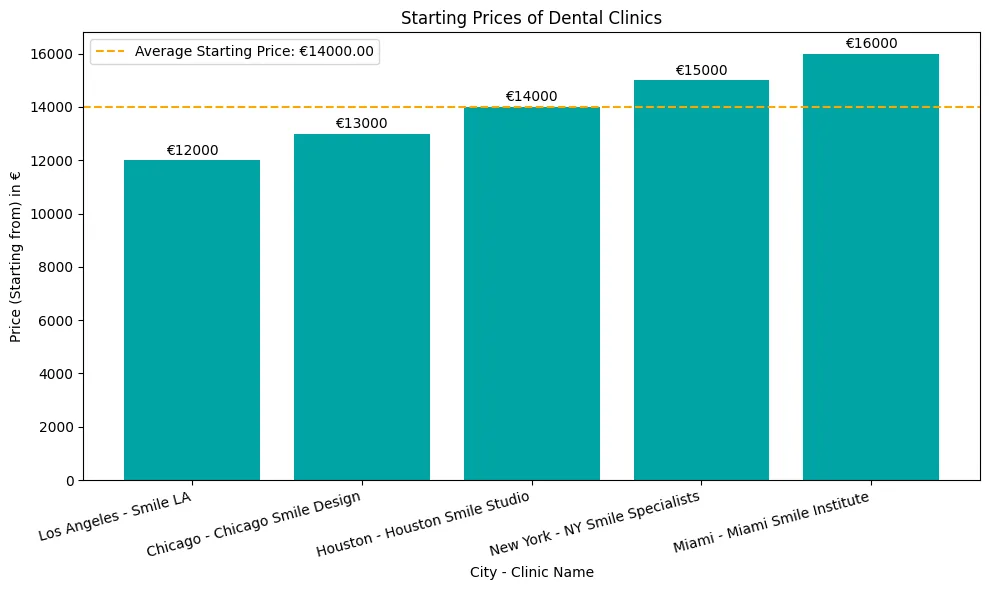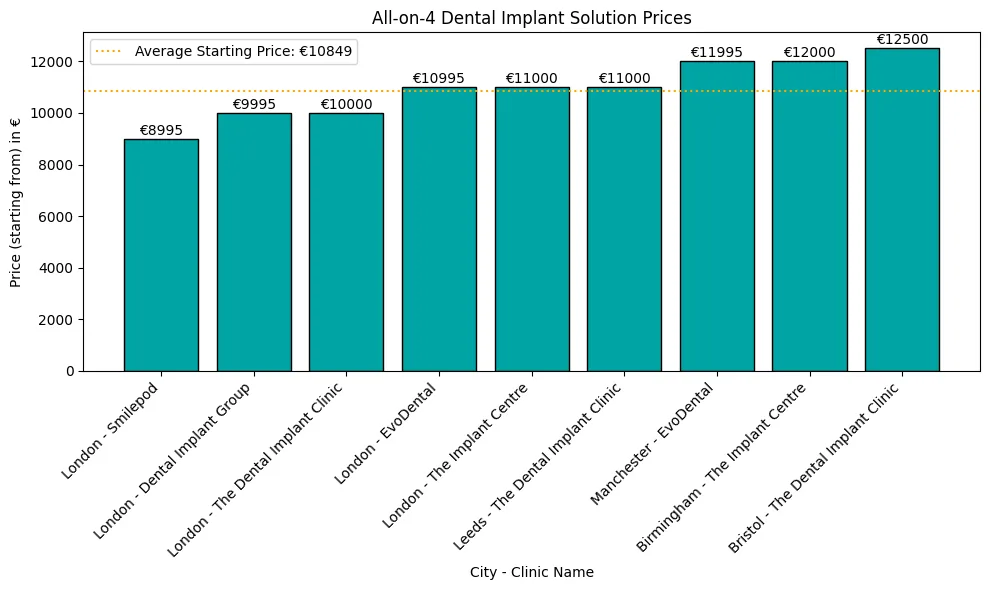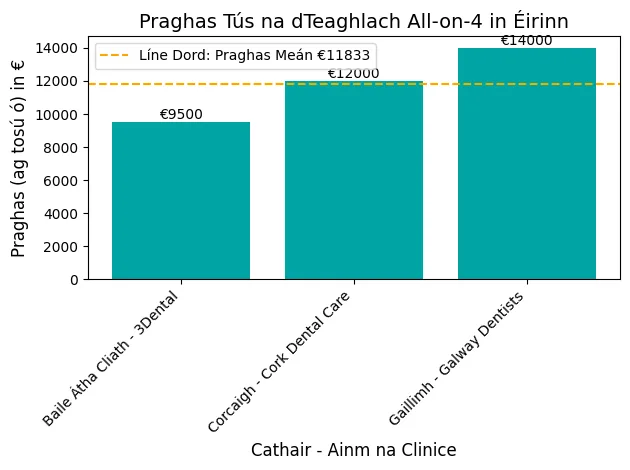Zahnimplantate vs. Brücken - was ist die beste Wahl, um fehlende Zähne zu ersetzen?
Wenn Sie mit Zahnverlust zu kämpfen haben, fragen Sie sich wahrscheinlich, welche Option das natürlichste Aussehen, das beste Gefühl und die beste Funktionalität bietet und gleichzeitig in Ihr Budget passt.
Was ist der Hauptunterschied zwischen Zahnimplantaten und Brücken?
Zahnimplantate und Brücken sind zwei gängige Lösungen für den Ersatz fehlender Zähne. Zahnimplantate bieten Langlebigkeit und Knochenerhalt, erfordern aber einen chirurgischen Eingriff und sind teurer (2.450 €). Zahnbrücken sind weniger invasiv und preiswerter (450-1.000 EUR), verhindern aber möglicherweise nicht den Abbau des Kieferknochens und haben eine kürzere Lebensdauer (5-10 Jahre).
| Merkmal | Zahnimplantate | Zahnbrücken |
|---|---|---|
| Langlebigkeit | Über 20 Jahre(1) | 5-10 Jahre(5) |
| Knochenkonservierung | Verhindert Knochenschwund(2) | Kann Knochenschwund nicht verhindern(2) |
| Kosten | €2,450(3) | €450-€1,000(3) |
| Chirurgisches Verfahren | Erfordert eine Operation(4) | Keine Operation erforderlich(5) |
| Erholungszeit | Längerer Aufschwung(4) | Schnellere Wiederherstellung(5) |
Vergleich zwischen Zahnimplantaten und Brücken
Vorteile und Nachteile der einzelnen Optionen
Zahnimplantate und Brücken haben jeweils ihre eigenen Vor- und Nachteile, so dass die Wahl von den individuellen Bedürfnissen und Umständen abhängt.
Vorteile von Zahnimplantaten:
Langlebigkeit: Zahnimplantate sind für ihre Langlebigkeit bekannt, die bei richtiger Pflege oft mehr als 20 Jahre beträgt, was sie zu einer langfristigen Lösung für Zahnersatz macht, der den natürlichen Zähnen sehr ähnlich ist (1).
Knochenkonservierung: Implantate tragen zur Gesunderhaltung des Kieferknochens bei, indem sie die natürlichen Zahnwurzeln nachahmen, was im Laufe der Zeit einen Knochenverlust verhindern kann (2).

Nachteile von Zahnimplantaten:
Kosten: Die Anfangsinvestitionen für Zahnimplantate sind höher und liegen im Durchschnitt bei etwa 2.450 € pro Implantat (3).
Chirurgisches Verfahren: Das Einsetzen von Implantaten erfordert einen chirurgischen Eingriff, der für einige Patienten aufgrund der damit verbundenen Erholungszeit und möglicher Komplikationen abschreckend wirken kann (4).
Vorteile von Zahnbrücken:
Weniger invasiv: Brücken erfordern keinen chirurgischen Eingriff, was sie zu einem einfacheren Verfahren mit einer kürzeren Erholungszeit macht (5).
Kostengünstig: Brücken sind im Allgemeinen erschwinglicher und kosten je nach den verwendeten Materialien und der Komplexität des Falles zwischen 450 und 1.000 Euro (3).

Nachteile von Zahnbrücken:
Kürzere Lebenserwartung: Brücken halten in der Regel 5 bis 10 Jahre, was im Laufe der Zeit zu zusätzlichen Kosten führen kann, da sie ersetzt werden müssen (5).
Auswirkungen auf benachbarte Zähne: Brücken stützen sich auf die Nachbarzähne, was im Laufe der Zeit zu Abnutzung und möglichen Schäden an diesen Zähnen führen kann (2).

Zu berücksichtigende Faktoren: Mundgesundheit, Budget und Ästhetik
Bei der Entscheidung zwischen Zahnimplantaten und Brücken sollten mehrere Faktoren berücksichtigt werden:
Mundgesundheit: Beurteilen Sie den Zustand Ihres Kieferknochens und Zahnfleischs. Implantate erfordern eine ausreichende Knochendichte, während Brücken geeignet sein können, wenn Knochenschwund zu befürchten ist (1).
Haushalt: Berücksichtigen Sie sowohl die Anfangskosten als auch die langfristigen Ausgaben. Implantate sind zwar mit höheren Anschaffungskosten verbunden, aber ihre Langlebigkeit könnte im Laufe der Zeit einen besseren Wert bieten (3).
Ästhetik und Lebensstil: Implantate bieten ein natürlicheres Aussehen und ein natürlicheres Gefühl, was für diejenigen wichtig sein kann, die Wert auf Ästhetik legen. Brücken können ebenfalls ästhetisch ansprechend sein, fühlen sich aber möglicherweise nicht so natürlich an (4).
Während Mini-Zahnimplantate vs. traditionelle Zahnimplantate ist eine weitere wichtige Überlegung für diejenigen, die Implantatoptionen in Betracht ziehen. Zu den wichtigsten Faktoren gehört die Mundgesundheit, bei der Sie den Zustand Ihres Kieferknochens und Ihres Zahnfleisches beurteilen müssen
| Faktor | Zahnimplantate | Zahnbrücken |
|---|---|---|
| Mundgesundheit | Erfordert eine ausreichende Knochendichte(1) | Geeignet, wenn Knochenschwund ein Thema ist(1) |
| Haushalt | Höhere Anfangskosten, besserer langfristiger Wert(3) | Anfangs erschwinglicher(3) |
| Ästhetik | Natürliches Aussehen und Gefühl(4) | Ästhetisch ansprechend, fühlt sich aber möglicherweise nicht so natürlich an(4) |
Zahnimplantat-Alternativen: Erkundung von Optionen jenseits von Implantaten
Wenn Sie Alternativen zu Zahnimplantaten in Erwägung ziehen, ist es wichtig, Optionen zu erkunden, die den Zahnverlust wirksam beheben und gleichzeitig auf die individuellen Bedürfnisse und Umstände abgestimmt sind.
Was sind Alternativen zu Zahnimplantaten?
Zahnimplantat-Alternativen bieten andere Ansätze für den Zahnersatz, die auch für diejenigen geeignet sind, die nicht für Implantate in Frage kommen.
Diese Alternativen können verschiedene Arten von Zahnbrücken und andere nicht-invasive Lösungen umfassen.
Zahnbrücken als praktikable Alternative zu Implantaten
Zahnbrücken sind nach wie vor eine beliebte Wahl für diejenigen, die eine weniger invasive und kostengünstige Lösung suchen.
Sie bieten ein natürliches Aussehen und ein natürliches Gefühl, was sie zu einer brauchbaren Alternative für Zahnersatz macht.

Schlussfolgerung & Key-Takeaways
Wichtigste Erkenntnisse:
Zahnimplantate bieten Langlebigkeit und Knochenerhalt, sind aber teurer und erfordern einen chirurgischen Eingriff.
Zahnbrücken sind weniger invasiv und budgetfreundlich, können aber den Abbau des Kieferknochens nicht verhindern und haben eine kürzere Lebensdauer.
Berücksichtigen Sie Ihre Mundgesundheit, Ihr Budget und Ihre Ästhetik, wenn Sie sich zwischen Zahnimplantaten und Zahnbrücken entscheiden.
Schlussfolgerung:
Die Entscheidung zwischen Zahnimplantaten und Brücken hängt von den individuellen Bedürfnissen und Umständen ab.
Beide Optionen haben ihre Vor- und Nachteile, und es ist wichtig, Faktoren wie Mundgesundheit, Budget und Ästhetik zu berücksichtigen, um eine fundierte Entscheidung zu treffen.
FAQ
Referenzen
(1) Jung Min Cho, et al. Long-term steroid therapy and Denosumab treatment leading to peri-implant medication-related osteonecrosis of the jaw: a case report. J Dent Implant Res. 2024;43(3):27-32.
(2) Hae-Seok Lee, et al. A retrospective study on the factors associated with marginal bone loss of short implants placed in posterior regions. J Dent Implant Res. 2023;42(3):46-52.
(3) Ola Abdelsamad Amin, et al. Assessment of stability of early loaded nano-coated hydroxyapatite implants in posterior maxilla. J Dent Implant Res. 2024;43(1):1-8.
(4) Tae-Gyu Kang, et al. Sofortige Implantation mit Enukleation der Zyste des Ductus nasopalatineus: Ein Fallbericht. J Dent Implant Res. 2023;42(4):53-59.
Artikel: Sofortige Implantation mit Enukleation der Zyste des Ductus nasopalatinae: Ein Fallbericht
(5) In-Soon Park, et al. Sofortimplantation über einen minimalinvasiven Ansatz bei aggressiver Parodontitis im posterioren Oberkiefer unter Verwendung des MagiCore-Implantats - 3 Fallberichte. J Dent Implant Res. 2023;42(3):35-45.




